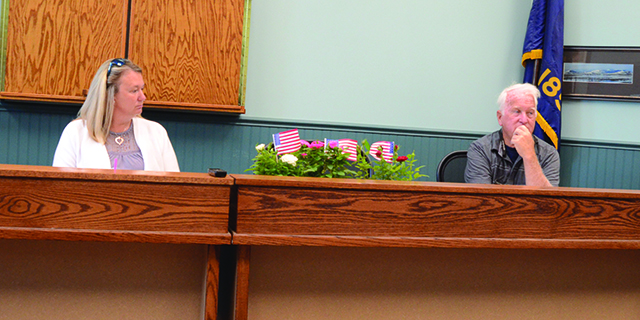On Liberty: The sacred gift of self-determination
Published 6:30 am Wednesday, February 2, 2022

- Patton
The concept of self-determination is a radical one. Our ability to self-determine — to make choices to manage our own lives — is one of the main things that sets us apart from animals, whose behavior is dictated mostly by instinct.
The brand of classical liberalism that our nation’s Founders embraced sought to free individuals to pursue opportunity wherever it might lead, and their high regard for individual sovereignty is clearly demonstrated in the language of our founding documents. This ideal was also one the Founders lived out personally, whether as entrepreneurs, soldiers and public servants, or simply as folks who sought to be the best versions of themselves. Americans have always placed a high value on our right to self-determine, but do our lives reflect a deep appreciation for it?
At the time of the American Revolution, our nation was the first of its kind to attempt to institute a government whose main purpose would be to protect the people’s right to self-determination. Until that time, nations around the world generally had societal structures based on a caste system, a form of social stratification developed to separate groups of people and justify different treatment and living standards. Under a caste system, a person’s opportunities in life, from jobs to marriage to education, are all determined before birth, and there are few ways by which to break out of the caste one is born into.
Unlike nations with caste systems, America has a rich history of embracing the idea of “making a better life” for oneself — we love a good underdog story. Immigrants have flocked to our country because of our reputation as “the land of opportunity.” We can read the countless stories of people like Cornelius Vanderbilt, former Pepsi CEO Indra Nooyi (an immigrant from India) and Oprah Winfrey to understand how a society based on class mobility and capitalism has led to vast improvements in the lives of people that otherwise would have been resigned to a life of poverty and shame.
It’s important to recognize, though, that the value of individual sovereignty goes beyond simply improving one’s standard of living. Accumulating material goods for one’s own personal enjoyment is not the best use of our ability to self-determine; we put it to best use when we strive for moral improvement. Benjamin Franklin serves as a premier example of a man who endeavored to develop his own character, and it is from him I hope we can all take inspiration.
Franklin was the son of a candlemaker, born into a poor family (one of 17 children) and received only two years of formal schooling. As a youngster, he was a bit impetuous; he enjoyed humiliating opponents during arguments and had a bit of a rebellious streak. Fortunately, we know him as a successful author, philosopher and diplomat, as well as one of the Founders of our great nation. His influence on American culture cannot be overstated. Benjamin Franklin attributed his own success in life to adherence to a character development plan that he produced in 1726 at the age of only 20. His plan identified 13 virtues: temperance, silence, order, resolution, frugality, industry, sincerity, justice, moderation, cleanliness, chastity, tranquility and humility, and over the course of his life he diligently sought to develop these virtues. In his later years he stated, “On the whole, though I never arrived at the perfection I had been so ambitious of obtaining, but fell far short of it, yet as I was, by the endeavor, a better and happier man than I otherwise should have been had I not attempted it.”
For Franklin, self-determination was not an end unto itself, nor did he seek solely to obtain material goods or make a name for himself as an inventor or wealthy landowner. He demonstrated a deep “devotion to egalitarianism, education, industry, thrift, honesty, temperance, charity and community spirit,” Walter Isaacson wrote in his 2003 book “Benjamin Franklin: An American Life.” Franklin’s commitment to living a virtuous life not only changed the course of our nation, it also influenced the lives of those closest to him and gave his life immense meaning and happiness.
When I think about the “Blessings of Liberty” and the concept of self-determination that underpins America’s government, cultural, and economic systems, I have to admit that I often do not honor this sacred gift. The ability to alter the course of one’s future is incredibly powerful, and yet I (and perhaps you as well) often take it for granted. I do not relentlessly seek to develop my character, and it’s far too easy for me to simply pass off my character flaws as “personality traits,” or lay the blame on others if I “rub them the wrong way.” Eleanor Roosevelt rightly stated, “Freedom makes a huge requirement of every human being. With freedom comes responsibility. For the person who is unwilling to grow up, the person who does not want to carry his own weight, this is a frightening prospect.”
I hope we can continually look to people like Ben Franklin and be encouraged to be the kind of people who honor the gift of individual sovereignty and are also faithful stewards of it.









